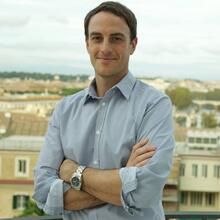A Reflection for the Memorial of Saint Frances Xavier Cabrini, Virgin
You can find today’s readings here.
“Jesus said to his disciples, “Things that cause sin will inevitably occur, but woe to the one through whom they occur.”” (Lk 17:1)
We hear the word “scandal” a lot in the Catholic Church today. The pope has reflected on it, warning Christians about the scandal of concealing the truth about abuse or leading a double life, which makes atheism more appealing than Christianity. The pope himself is not immune from his critique when dealing with questions of abuse.
Just recently, the new prefect of the dicastery for the doctrine of the faith issued a statement saying a transsexual person who has undergone hormone treatment and gender reassignment can be baptized “if there are no situations in which there is a risk of generating public scandal or confusion among the faithful”.
The pope’s most vocal critics say causing scandal and confusing the faithful are exactly what he’s doing by watering down Catholic doctrine or using ambiguous language regarding certain moral teachings.
Other Catholics read those criticisms of Francis and conclude that the critics themselves are causing scandal by ignoring or misrepresenting the church’s teachings on love, mercy and conscience in complex pastoral situations.
I’m becoming a bit scandalized by how often Catholics warn me about other Catholics scandalizing me.
Frankly, I’m becoming a bit scandalized by how often Catholics warn me about other Catholics scandalizing me. There are legitimate scandals in the church which must be named and rooted out, most notably various types of abuse. But many references to “scandal” are used simply as cudgels to discredit other Catholics with whom I disagree about a particular issue. I find that use of the term patronizing.
One of my big takeaways thus far from the Synod on Synodality is that the open and honest discussions are helping us all mature in our faith. In our vast diversity we are discovering the depths of complexity in many pastoral situations. Not everything in our church is black and white. Not every person who disagrees with me is causing scandal.
In a recent webinar about the first synod gathering in Rome hosted by the Liturgical Press, one of the synod’s retreat masters, Timothy Radcliffe, O.P., called the process “a delicate child learning to walk, that will fall over.” We have a choice, he said, “to cynically despair, undermining that child, or cherish in hope what has begun.”
We were all children once. Like children, our faith has to mature and grow up. We have to live in hope for the future, not despair. That doesn’t mean ignoring sin or the real scandals that exist in our church. But neither does it mean remaining stuck in a spiritual space where everything I don’t agree with is a scandal. Lord, increase our faith.







